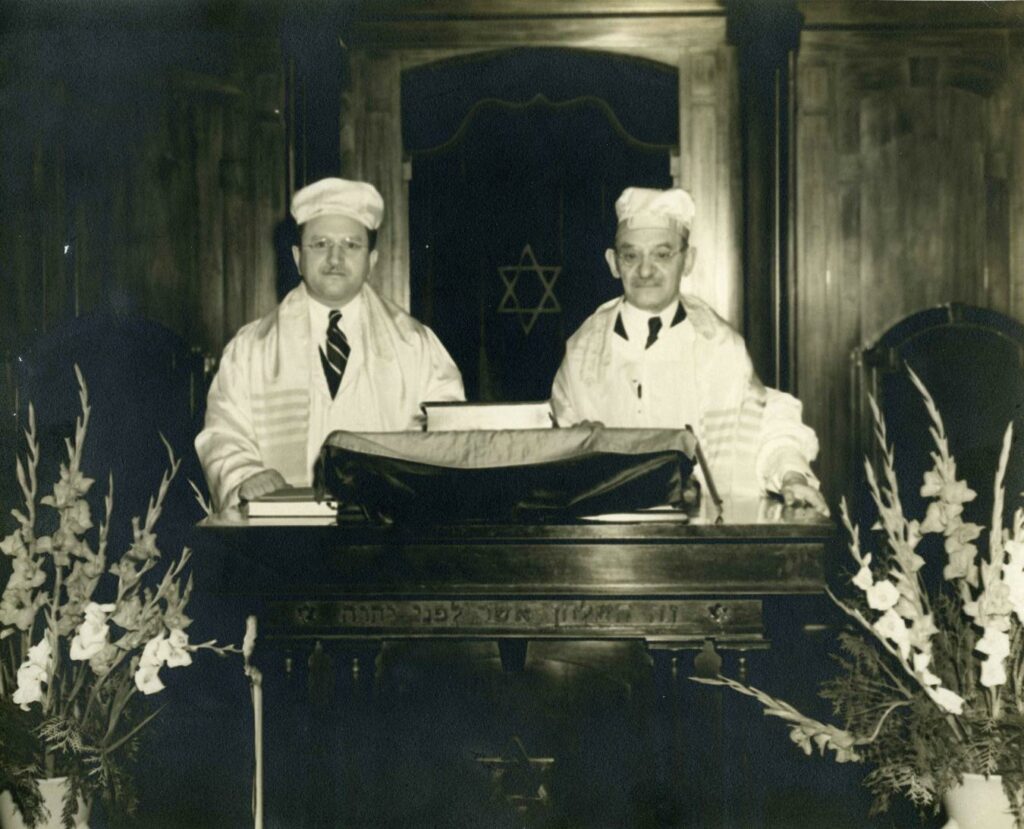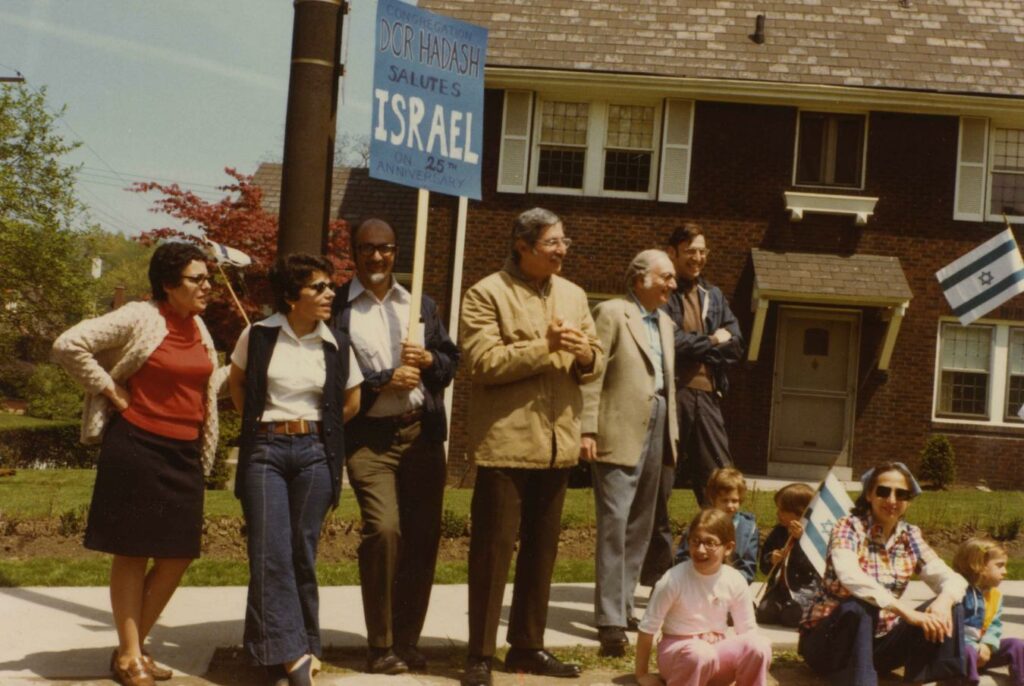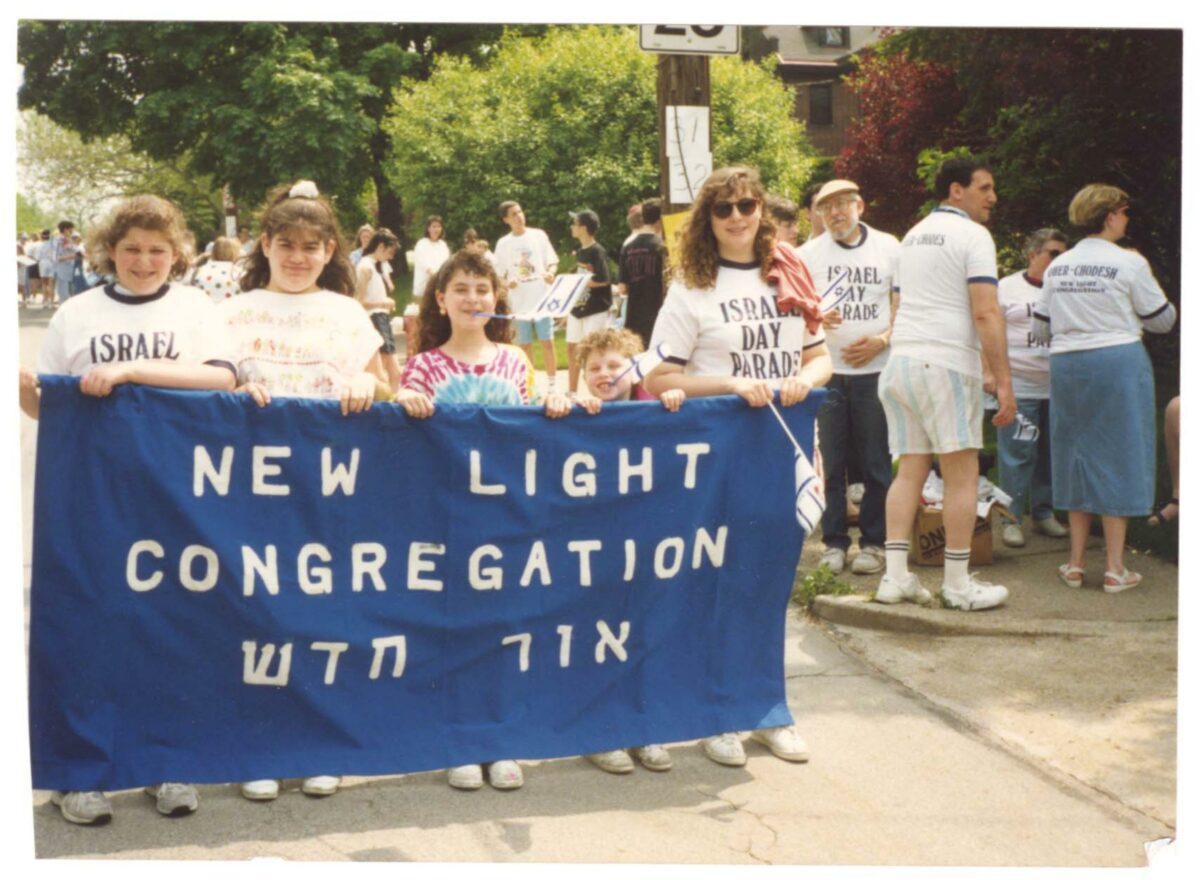When 11 worshippers were gunned down inside a Pittsburgh synagogue, the entire world sprung into action.
The devastation that took place on Oct. 27, 2018, at Squirrel Hill’s Tree of Life synagogue was immediately followed by individuals, groups and organizations on a global scale doing everything in their power to support the Pittsburgh Jewish community. Well wishes flooded in, vigils and fundraisers were organized, and there continued to be wall-to-wall media coverage of the deadliest antisemitic attack in American history.
As of earlier this month, there is now a central location where a lot of those leftover materials and stories can be easily accessed in the form of The October 27 Archive. The site contains digitized versions of objects, photos and articles — as well as a section of oral testimonies — relevant to the three congregations formerly housed at 5898 Wilkins Ave.: Tree of Life Or L’Simcha, Dor Hadash and New Light.
The project is a yearslong collaboration between the Heinz History Center’s Rauh Jewish History Program & Archives and the Jewish Federation of Greater of Pittsburgh. It was partially funded by a grant from the U.S. Department of Justice’s Antiterrorism and Emergency Assistance Program, which was created with the goal of “supporting communities after mass violence incidents.”
“We felt we had a unique opportunity … to encourage people to think about who these organizations are and to not just focus on these objects but think about the relationship between Oct. 27 and the people who were bringing words of comfort to those who were receiving them,” said Rauh Jewish Archives Director Eric Lidji.

As a Jew himself, Lidji will never forget where he was on Oct. 27, 2018. He was teaching a class at Rodef Shalom Congregation in Shadyside that happened to end around the time news of the shooting began to break. Lidji “started to comprehend the extremity of what happened” after he began hearing sirens headed to Tree of Life, which was only a little more than a mile away from Rodef Shalom.
The genesis of The October 27 Archive dates back to 2019. Lidji had an abundance of materials related to the shooting and those three congregations but nowhere to display it for anyone in Pittsburgh or elsewhere. He realized the solution was to create an online repository for everything, which went against the generally accepted notion that archives are meant to contain “things that no longer have a use but still have value.”
“This was different because it has tremendous value and it still has use,” he said.
Funding for the archive was first secured in May 2020, but it took an extra 2½ years to work through COVID-19-induced delays while continuing to build the website and digitize enough of what was already available for public consumption. The site finally launched in early January with 150 objects on display, including 50 news articles that “represent all the local media coverage on that first day,” Lidji said.
It also houses 20 oral reflections on that day from community leaders both past and present such as Holocaust Center of Pittsburgh Director Lauren Bairnsfather and former Steelers offensive tackle Zach Banner. Lidji said that he is still cataloging and deciding which of the 6,000 objects, 3,000 media articles and 80 prerecorded oral histories will eventually make their way to the archive.
“The point of these kinds of websites is that you don’t have to waste time going to look for stuff,” he said. “The stuff you need is there, and you can put the time you would’ve spent looking toward creating.”

The Jewish Federation was involved with the creation of The October 27 Archive since the beginning, according to director of marketing Adam Hertzman. He said that his organization loved the idea of future generations logging onto the archive and immediately having all the tools at their disposal so they can possibly “understand things in a historical context in a way that nobody now understands.”
These days, the Jewish Federation is working with groups like the 10-27 Healing Partnership to prepare the Pittsburgh Jewish community for the Tree of Life shooter’s trial, which is set to begin in April. Hertzman is concerned that constant coverage of the trial may “re-traumatize a lot of community members,” and he thinks The October 27 Archive also has the potential to “stir up feelings” in anyone still reeling from that horrible day.
“For many people, healing goes in waves,” he said. “They get better, then they get worse. … We’re very conscious of the fact that healing process is ongoing and the importance of making sure people have the support they need. This was absolutely an important part of that.”
One of the ideas the archive reinforced for Hertzman was that “we’re at an unusual moment in history” when an antisemitic attack like this was met with worldwide sympathy, a reaction that hasn’t always been the case for tragedies involving Jews. The October 27 Archive acts as a constant reminder of how in the aftermath of the Tree of Life shooting, there were plenty of “good people in Pittsburgh and around the world” who just wanted to help, Hertzman said.
Likewise, Lidji knows that The October 27 Archive may be a difficult subject for many to revisit. He sees his pet project as a way to “people’s eyes” regarding how so many folks from such different backgrounds “reached across those divisions very easily” in the wake of such an evil act.
“It’s not an obligation,” he said. “It’s an opportunity.”
Joshua covers pop culture, media and more at the Pittsburgh Post-Gazette, but he's currently on strike. Contact him at jaxelrod@unionprogress.com.



